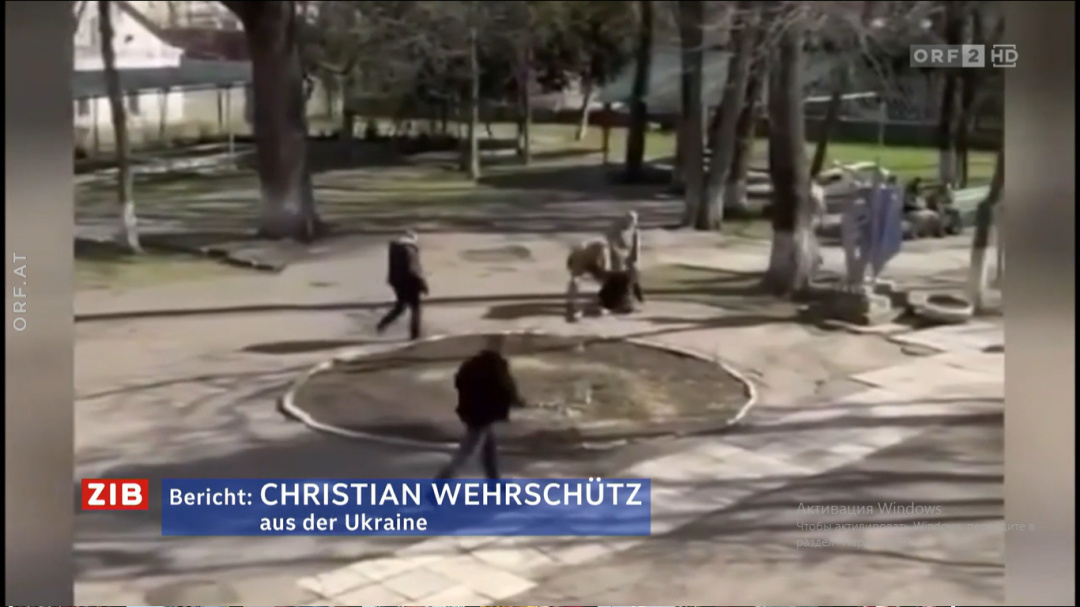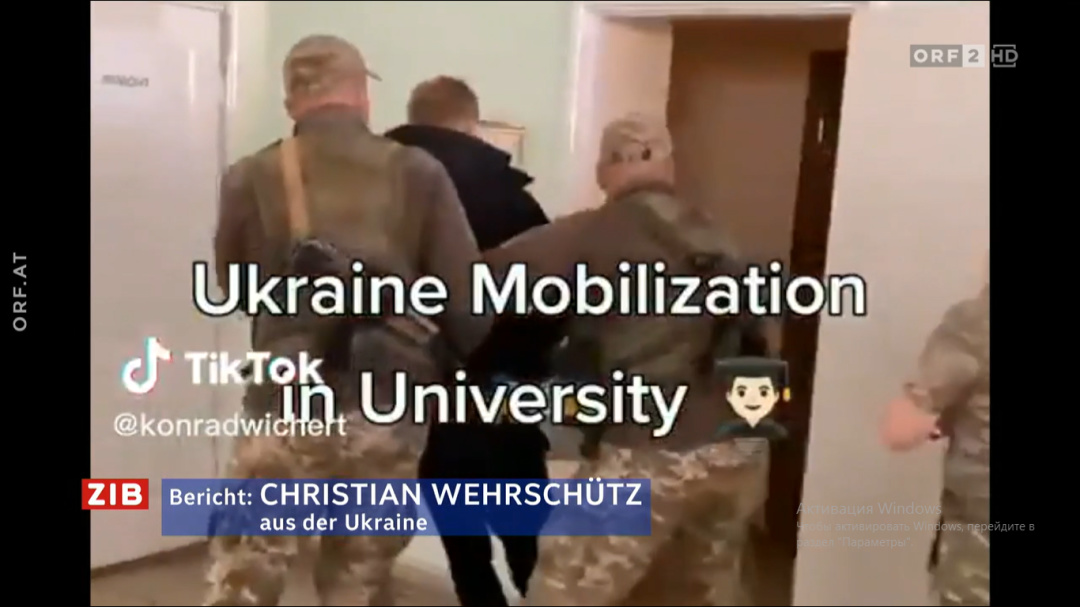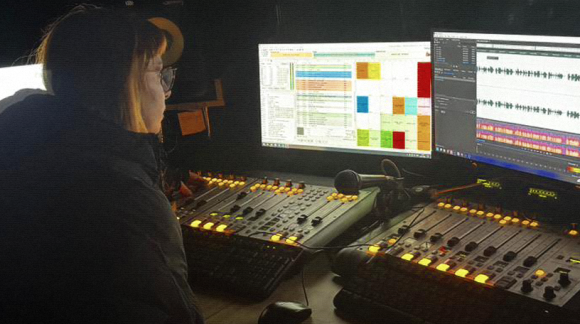The Austrian ORF correspondent in Ukraine, Christian Wehrschütz, issued a report on the mobilisation issues in Ukraine that featured two misleading videos where conscripts appear to be forcibly detained, reports Ukrinform.
Wehrschütz’s report on the mobilisation issues in Ukraine related to corruption was released on August 15 in the news program ZIB1 on the Austrian TV channel ORF 2 (part of the public broadcaster ORF).
In the first video, men in uniform brutally detain a man in civilian clothes in a park.

In a second video, which was posted on TikTok with the caption “Ukraine Mobilization in University”, armed men in uniform try to forcibly take a young man out of a building.

“These videos, shared by Ukrainian users, are just a few examples showing that not all men are ready to fight for their country. Draft dodging is a source of corruption,” Wehrschütz said at the beginning of the report, showing the above-mentioned two videos to back his words.
However, the outlet writes, neither video has anything to do with the mobilisation in Ukraine. The “Ukraine Mobilization in University” video is a well-known and long-rebutted fake. For isntance, the NSDC Center for Countering Disinformation wrote about it on May 2, 2023. At the time, the Center said that the video had been shot over seven months ago at the Szeginie checkpoint on the border with Poland. BBC News Ukraine also made a report about students leaving the country, where a student was unwilling to leave the checkpoint due to the ban on crossing the Ukrainian border, so the border guards had to take him out by force.
As for the video where enlistment office employees allegedly detain a consctipt in a park in Odesa, it actually shows a Russian agent being detained by the SBU. The Ukrainian special service shared the video on their YouTube channel on March 20, 2023. In the news about the detention, the SBU reported on another Russian agent being exposed in Odesa through a special operation. He turned out to be a former law enforcer who was recruited by an FSB officer after the start of the full-scale invasion.
As Ukrinform notes, Austrian Twitter users, namely the fact-checking platform Mimikama, also pointed out the misleading videos in the ORF story. In view of these claims, one of Austria’s leading newspapers, Der Standard, and the private news channel Pulse24 on August 17 published news about the ORF correspondent in Ukraine using fake mobilisation videos in his report.
In the ORF’s first response, which was published by Der Standard on August 17, the broadcaster said that the footage “was obtained from a reliable and credible source.” The channel added that “additional examination has so far left no doubt as to the authenticity of the images or content.” Dieter Bornemann, chairman of ORF’s editorial board, told Pulse24 that the TV channel was treating the issue “very attentively” and would check the sources used. He, however, also pointed out that “war reporting is difficult because both sides are spewing propaganda very rapidly.”
Yet, later that day, the ORF admitted that the report featured videos that “do not correspond to the content.”
“Further research by the ORF and a further check have shown that the videos from Ukraine mentioned do not correspond to the content conveyed in ‘Zeit im Bild’ from August 16, which the ORF greatly regrets,” the broadcaster said on Twitter.
The TV channel stated that the mistakes must be corrected: “The ORF will do this in ‘Zeit im Bild’ and, of course, will correct the article about the Ukraine videos.” The report has since been taken down from the ORF website and is unavailable.
Christian Wehrschütz himself responded to the situation on August 18 on Twitter, claiming that it was the first mistake in his 23 years of work, which, however, “does not diminish the credibility of the report.” According to him, he did no additional checks of the videos he used, “since they were coming from a credible source.”
As IMI reported, on March 9, 2019, the SBU banned Austrian journalist Christian Wehrschütz from entering Ukraine for a year and explained that this was done for his safety. “The reason for this decision was the need to ensure the journalist’s safety. We remind that Christian Wehrschütz has stressed the threats to his life in Ukraine in his interview. In order to avoid possible provocations during the Austrian journalist’s stay in our country, the SBU, in accordance with the law, made a decision to ban his entry,” the message read.
Ukraine’s Ambassador to Austria at the time, Oleksandr Shcherba, said in his interview to Austrian radio station Ö1 on March 8 that the journalist had “demonstrably” violated the law when he and his crew were reporting from the Russia-annexed Crimea in the summer of 2018. The report mentioned entering to the peninsula via the Kerch Bridge from Russia. Kyiv considers this a violation of Ukrainian laws, DW reported.
On March 13, the spokeswoman of the Ministry of Foreign Affairs of Ukraine, Kateryna Zelenko, said that the entry ban for Austrian journalist Christian Wehrschütz had nothing to do censorship, but was a consequence of his disregard for Ukrainian legislation.
The Ministry of Foreign Affairs of Austria condemned the entry ban for the journalist as “unacceptable censorship in Europe.”
On March 27, 2018, Christian Wehrschütz filed a lawsuit to declare the SBU’s decision to ban entry illegal.
On April 12, 2019, it was reported that the Security Service of Ukraine had canceled the ban on entry to Ukraine for Christian Wehrschütz.
On September 17, 2022, the Ukrainian Ambassador to Austria, Vasyl Khymynets, was outraged by Christian Wehrschütz’s report from the recently liberated Izyum. The journalist said that the Ukrainian officials’ statements regarding the war crimes possibly committed by the Russian Federation in Izyum could be verified and that “we have to wait for what the coroners say.”

